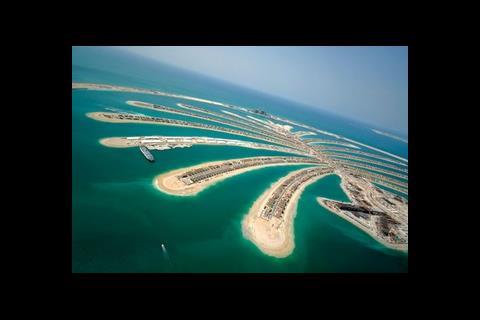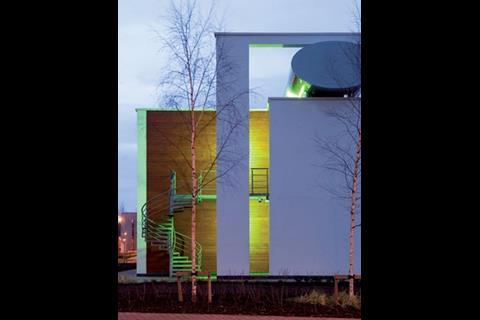Sustainability is at the forefront of the industry’s thinking, but what else are building services engineers talking about? BSj asked leading practitioners to name their hot topics
GREEN PITFALLS
Overemphasis on carbon
It’s important, but the industry’s focus on carbon could result in other vital issues such as water and indoor air quality not receiving sufficient consideration in designs.
Beware bling
Building services engineering has always been about efficiency, problem solving and energy conservation. The industry needs to avoid being dazzled by trendy, unsustainable solutions and bolt-on sustainable technologies.
New life for old buildings
Building services professionals are eager to use the latest technologies in newbuilds to help towards a low-carbon future. But these efforts will be futile if we don’t acknowledge the impact of the existing stock, most of which will still be standing many decades from now. The industry needs to work harder to integrate renewable energy systems into these.
GOVERNMENT AND REGULATION
Government divergence
Ministerial departments appear to have a conflicting agenda between economic and environment matters. This results in confusion at industry level. All facets of government need to have a unified agenda.
Ministerial flip-flopping
The rate of change of legislation that has a bearing on the construction industry is exasperating. The constant swirl of regulatory and legislative amendments causes uncertainty and makes it difficult for the sector to innovate and to implement long-term strategies.
Party politics
Those wielding power should take time to get a thorough understanding of what sustainability means and stop politicising it.
Policing the rules
Failure to ensure enforcement of legislation affecting the built environment – from Whitehall and Brussels – will encourage non-compliant schemes and result in a lost opportunity to build better, more sustainable, energy-efficient buildings.
TRENDS
The only way is up
The skyscraper is back in business – but both tenants and developers are now demanding that the new generation should be lean and green, unlike the energy guzzling towers of the past.
Post-occupancy valuations
A POE needs to be mandatory on every new building if designers and contractors are to learn what works and what doesn’t, and ensure the next generation of projects is better.
Whole life value
The difference between cost in use and initial cost of a building will be an ever more important consideration, reducing CO2 emissions by influencing the availability and uptake of the most energy efficient designs and equipment.
IN THE WORKPLACE
Risk cascading
Originality is being suffocated in the building services profession as more and more liability for outcomes is being imposed on the industry. If the situation continues, it could put a brake on innovation.
Beware the PM
The real threat to innovative design is project managers. They are often more concerned with the process of construction and sticking to the build programme than with design and energy issues. As a result, time that could have been spent on improving a design is sacrificed for time spent on construction.
Interdisciplinarity
Are we approaching the day when building services engineering ceases to exist as a standalone discipline? Non-engineering businesses such as architects are starting to employ sustainability experts. In addition, the drive for sustainable developments has brought the engineer’s role to the start of the planning and design phase of many projects, which sees them collaborating with more of the building professions. In the future building services professionals will need to apply knowledge acquired in a wider variety of academic fields.
PROFESSIONAL STANDING
A sense of worth
Building services is the profession best placed to create a sustainable built environment – and should be accorded appropriate status.
One voice
Building services is a network of complementary sectors. The industry would have a far more powerful voice if efforts were made to bring together the trade and professional bodies such as CIBSE, the Institution of Mechanical Engineers, the Institution of Engineering and Technology, the Heating and Ventilating Contractors’ Association, the Electrical Contractors’ Association and the Facilities Management Association.
Proper representation
Is it time for construction to have a dedicated minister in light of the industry’s key position in delivering a sustainable future?
HUMAN RESOURCES
Where is the talent?
Building services is sexier than architecture – but a dwindling talent supply is evidence that the message has yet to reach schools and colleges. The industry needs to find better ways to sell itself.
The peril of inexperience
Young engineers should have to serve an apprenticeship before applying expertise to things as important as buildings – the view of one, more mature, respondent.
Big game hunting
The best building services talent is being poached by clients as developers and fund managers seek to fill “head of sustainability” posts. The profession needs to work harder at retaining its most talented staff.
MONEY MATTERS
Energy costs
High energy prices are here to stay. This is good news for building services engineers because it places energy – and the need to conserve it – high up the boardroom agenda. It should be an important catalyst in generating work and increasing the status of engineers. The downside, of course, is that engineering practices will have to cope with rising prices just like everyone else.
The economy, stupid
As the country slides towards recession, developers are drawing in their horns and construction activity in the private sector is starting to tail off. As a result, some consultancies are looking to grow their presence in the booming economies of the Middle and Far East and other more exotic locations. Meanwhile, those looking to ride out the downturn in the UK increasingly will look to public sector projects to provide work.
Survival of the fittest
The economic downturn will lead to a situation where companies that can deliver the most value to clients will be the survivors. As in any tough economic climate, the net result is a market rationalisation, with stronger companies winning more of the available business and the weaker ones being forced to either downsize or go out of business. Excellence will prevail, and knowledge is likely to be the defining competitive factor. However the worry for some companies is that this competitive edge will require a higher level of intellectual property than they currently have in their organisations.
Source
Building Sustainable Design
Postscript
Speak up for yourself and the industry: What are the big issues for you and your business? What is the industry doing well – and doing badly? Tell us what you think our experts have overlooked – email us at bsjeditorial@cmpi.biz
























No comments yet